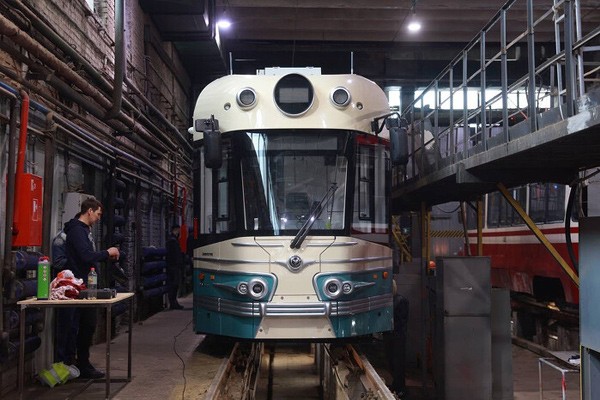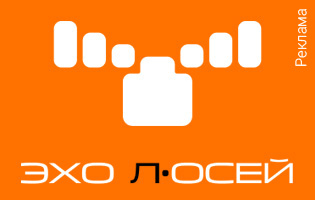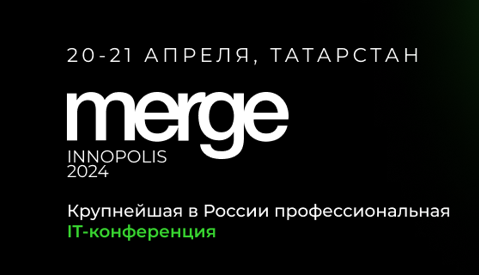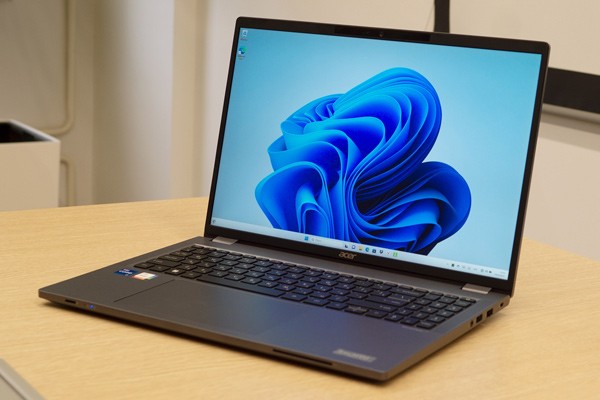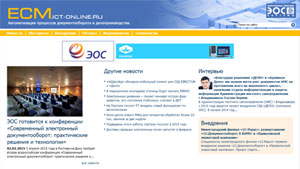Local Firms Throw Their Nets Out for the Wireless
As a standard of wireless communication, Wi-Fi technology is meant for transmitting data and providing access to the internet over short distances (from 100 to 500 meters). To use this service a user should have a correspondingly equipped portable computer (laptops are now often equipped with Centrino technology, which allows Wi-Fi access without additional interfaces).
The first hot-spots appeared in St. Petersburg in 2001, around the time that this technology gained popularity in the West, and were set up by the provider ComSet, a company no longer in existence.
Later this technology was promoted in two main directions.
Firstly, public hot-spots were developed by several large Petersburg providers. At present these include PeterStar (around 20 hot-spots), MegaFon (13 hot-spots) and Kvantum (more than 20 working places of access). All of them have targeted the same types of places — restaurants, hotels, cafes, train stations and airports. Their main competitive advantage is a unified payment card.
Secondly, many public places (including restaurants and hotels) install hot-spots by themselves if they are not satisfied with the conditions which the above-listed providers offer. There are approximately around 200 such independent hot-spots.
It’s difficult to give the precise number of users in St. Petersburg. However, according to statistics provided by the company PeterStar, one hot-spot is used on average by several tens of people a day.
This year is set to become a turning point for the market. Wi-Fi services will become available in places that up until now were not even considered. Observers consider this trend as a sign of market development, although in most cases the installation of a hot-spot is related to a company’s image, at best acting as an introduction to an additional service.
At the beginning of this year hot spots appeared in the cinema chain Kronverk — one of the largest players on the Petersburg cinema market. This project was realized with the assistance of vendor USRobotics, which provided its equipment MAXg for the installation of the wireless format. Organizers of the project are hoping to attract and retain a new category of clients — Wi-Fi access is free in the cinema, a fact advertised on posters in each Kronverk Cinema. “Our company got involved in this project to promote the product line. This idea found support in Kronverk, which allowed us to develop our network in the shortest amount of time,” said the project manager of the company USRobotics Russia Alexey Stanovoy.
All of this only confirms that in the entertainment industry each company tries to take original steps to attract new clients and maintain a loyal customer base. As a package offering free access to the internet, it’s obvious that Kronverk has accomplished such a task. Now one can often see clients with notebooks or pocket PCs in the entrance halls and cafes of such ‘connected’ cinemas, looking through the schedule of a cinema or video reels of new films.
“For us the results of the project are more than satisfying. It’s difficult to tell the precise number of clients who have used this service but the dynamics of growth of ‘wireless clients’ is undoubtedly positive. In Kronverk cinemas Wi-Fi services are used by several thousand people a month, according to the most modest calculations when traffic is measured by gigabits,” said Stanovoy.
Moving on, Russia’s first petrol station hot-spot was installed by the company Lukoil in association with MediaSeti (Unitline), which develops wireless access services on a base of pre-WiMax technology. Having tried this out for the first time in St. Petersburg, the company hopes to offer the service to other participants of the fuel retail market. Lukoil also hopes for a more global development of hot-spots across its Russian chain.
It’s interesting to note that because Lukoil’s local network developed for the most part by the acquisition of competitors, the service stations are of different formats. The first hot-spot was opened at the service station on Pulkovskoe road (near to the airport).
“Our expectations for this hot spot were justified — there is demand for these services and the numbers of users is growing,” said a Unitline representative.
This year the library segment has also started to develop more or less actively in St. Petersburg. If in Moscow large libraries were among the first to attract the attention of Wi-Fi providers, here these establishments have managed without wireless services, although a few unsuccessful attempts were made on a municipal level.
The Library-Information center of the International Bank Institute (on Nevsky Prospekt) became the first provider of Wi-Fi, a project realized by the company Orange System.
“If it is necessary to create a system of video surveillance, provide access to the internet or an opportunity to download large volumes of information to a PC, then of course Wi-Fi would be very appropriate. Moreover, if it is an old library, it will be quite difficult to neatly install cables and Wi-Fi without doubt would be the most convenient solution. In my opinion, if a library has an electronic edition it is very convenient to download materials, books, documents through Wi-Fi into a laptop. In this way people have an opportunity to work with this material not only inside a library but in any other place,” said the Orange System Director general Dmitry Zuev.
Other such projects are being closely examined in the city’s Central Library and in the Russian National Library.
“The testing of wireless technologies is being carried out, issues concerning demand, the amount of necessary lines, issues of data protection etc. are being studied at the moment. It remains in the stage of planning but in the nearest future we plan to use Wi-Fi,” said the head of automation department of Russian Science Library Sergey Gorbunov.
Continuing the theme, hot-spots are currently being installed in several educational institutions and is also available in the dormitories of, for example, the St. Petersburg State University of Engineering and Economics and at the St. Petersburg State University of Information Technologies, Mechanics and Optics.
Of course, Wi-Fi services are also attracting the attention of retail networks, for example, a test hot-spot was installed in one of the Bukvoyed book stores. This is not the first retail experience — in its day Quantum installed hot- spots in Computerny mir stores and the computer stores Key. However, these are currently out of order (although they are nominally on the provider’s list) because of a lack of demand.
In the case of Bukvoyed the situation is different. The chain positions itself as premium class stores, with some shops promoted as readers’ clubs. In conditions of high competition, owners of service, sales and entertainment-related firms are looking for new methods of attracting people to their stores. “The growth of interest in Wi-Fi services confirms this,” noted the head of sales at the company United Nets Dmitry Petrov.
Finally, the installation of a hot-spot by the same Comstar in the metro station Technologichesky Institute has become the last and one of the most controversial projects.
Such a move can be considered the first in a row of similar projects, because an exclusive right to lay the lines of communication in the underground belongs to Metrocom, 45 percent of which belongs to Comstar-OTS.
Yet the initiative provokes skepticism in other players.
“At the moment providing public access to Wi-Fi is to a greater extent an image thing. The number of users is not that high, though interest is increasing. That’s why it can be said that the majority of market players are investing money in networks for the future. At the same time one still needs comfortable conditions when accessing the internet, which is why Wi-Fi is popular mainly in hotels, cafes, airports. And it’s difficult to tell for the time being whether there is going to be much demand for this service in the metro,” press secretary of the company MegaFon Northwest Maria Georgievskaya said.
Installation of Wi-Fi in port mooring zones is the last in a row of such experiments. Works are being carried out at the moment by local departmental provider TK Konvey Plus. But as its commercial manager, Aleksandr Suzdalev, has noted — demand in this case is almost guaranteed because the installation is being made on the request of the Russian union of sailors and is unique on the Russian territory. Following its realization, ship crews and passengers will have an opportunity, during their stay in port, to have high-speed and cheap access to the internet directly from their cabins.
Интересные ссылки
- МТС Exolve становится единой платформой и зонтичным брендом для продуктов МТТ
- Запустили цифру в «Космос»: отель в центре Петрозаводска теперь один из самых современных в регионе
- Новости ИТ и телекома Петербурга – дайджест СМИ на 12 апреля 2024 года
- Охвачены оптической сетью: Ростелеком модернизировал линии связи в двух карельских поселках
- «Телфин» расширяет возможности сервиса для оценки звонков

